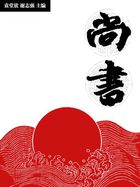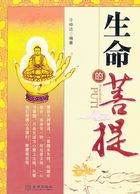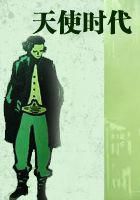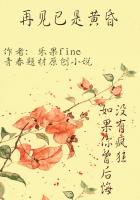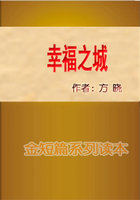8.When thou hast assumed these names, good, modest, true, rational, a man of equanimity, and magnanimous, take care that thou dost not change these names; and if thou shouldst lose them, quickly return to them. And remember that the term Rational was intended to signify a discriminating attention to every several thing and freedom from negligence; and that Equanimity is the voluntary acceptance of the things which are assigned to thee by the common nature; and that Magnanimity is the elevation of the intelligent part above the pleasurable or painful sensations of the flesh, and above that poor thing called fame, and death, and all such things. If, then, thou maintainest thyself in the possession of these names, without desiring to be called by these names by others, thou wilt be another person and wilt enter on another life. For to continue to be such as thou hast hitherto been, and to be tom in pieces and defiled in such a life, is the character of a very stupid man and one overfond of his life, and like those half-devoured fighters with wild beasts, who though covered with wounds and gore, still intreat to be kept to the following day, though they will be exposed in the same state to the same claws and bites. Therefore fix thyself in the possession of these few names: and if thou art able to abide in them, abide as if thou wast removed to certain islands of the Happy. But if thou shalt perceive that thou fallest out of them and dost not maintain thy hold, go courageously into some nook where thou shalt maintain them, or even depart at once from life, not in passion, but with simplicity and freedom and modesty, after doing this one laudable thing at least in thy life, to have gone out of it thus. In order, however, to the remembrance of these names, it will greatly help thee, if thou rememberest the gods, and that they wish not to be flattered, but wish all reasonable beings to be made like themselves; and if thou rememberest that what does the work of a fig-tree is a fig-tree, and that what does the work of a dog is a dog, and that what does the work of a bee is a bee, and that what does the work of a man is a man.
9.Mimi, war, astonishment, torpor, slavery, will daily wipe out those holy principles of thine. How many things without studying nature dost thou imagine, and how many dost thou neglect? But it is thy duty so to look on and so to do everything, that at the same time the power of dealing with circumstances is perfected, and the contemplative faculty is exercised, and the confidence which comes from the knowledge of each several thing is maintained without showing it, but yet not concealed. For when wilt thou enjoy simplicity, when gravity, and when the knowledge of every several thing, both what it is in substance, and what place it has in the universe, and how long it is formed to exist and of what things it is compounded, and to whom it can belong, and who are able both to give it and take it away?
10.A spider is proud when it has caught a fly, and another when he has caught a poor hare, and another when he has taken a little fish in a net, and another when he has taken wild boars, and another when he has taken bears, and another when he has taken Sarmatians. Are not these robbers, if thou examinest their opinions?
11.Acquire the contemplative way of seeing how all things change into one another, and constantly attend to it, and exercise thyself about this part of philosophy. For nothing is so much adapted to produce magnanimity. Such a man has put off the body, and as he sees that he must, no one knows how soon, go away from among men and leave everything here, he gives himself up entirely to just doing in all his actions, and in everything else that happens he resigns himself to the universal nature. But as to what any man shall say or think about him or do against him, he never even thinks of it, being himself contented with these two things, with acting justly in what he now does, and being satisfied with what is now assigned to him; and he lays aside all distracting and busy pursuits, and desires nothing else than to accomplish the straight course through the law, and by accomplishing the straight course to follow God.
12.What need is there of suspicious fear, since it is in thy power to inquire what ought to be done? And if thou seest clear, go by this way content, without turning back: but if thou dost not see clear, stop and take the best advisers. But if any other things oppose thee, go on according to thy powers with due consideration, keeping to that which appears to be just. For it is best to reach this object, and if thou dost fail, let thy failure be in attempting this. He who follows reason in all things is both tranquil and active at the same time, and also cheerful and collected.
13.Inquire of thyself as soon as thou wakest from sleep, whether it will make any difference to thee, if another does what is just and right. It will make no difference.
Thou hast not forgotten, I suppose, that those who assume arrogant airs in bestowing their praise or blame on others, are such as they are at bed and at board, and thou hast not forgotten what they do, and what they avoid and what they pursue, and how they steal and how they rob, not with hands and feet, but with their most valuable part, by means of which there is produced, when a man chooses, fidelity, modesty, truth, law, a good daemon (happiness)?
14.To her who gives and takes back all, to nature, the man who is instructed and modest says, Give what thou wilt; take back what thou wilt. And he says this not proudly, but obediently and well pleased with her.
15.Short is the little which remains to thee of life. Live as on a mountain. For it makes no difference whether a man lives there or here, if he lives everywhere in the world as in a state (political community). Let men see, let them know a real man who lives according to nature. If they cannot endure him, let them kill him. For that is better than to live thus as men do.
16.No longer talk at all about the kind of man that a good man ought to be, but be such.
17.Constantly contemplate the whole of time and the whole of substance, and consider that all individual things as to substance are a grain of a fig, and as to time, the turning of a gimlet.

